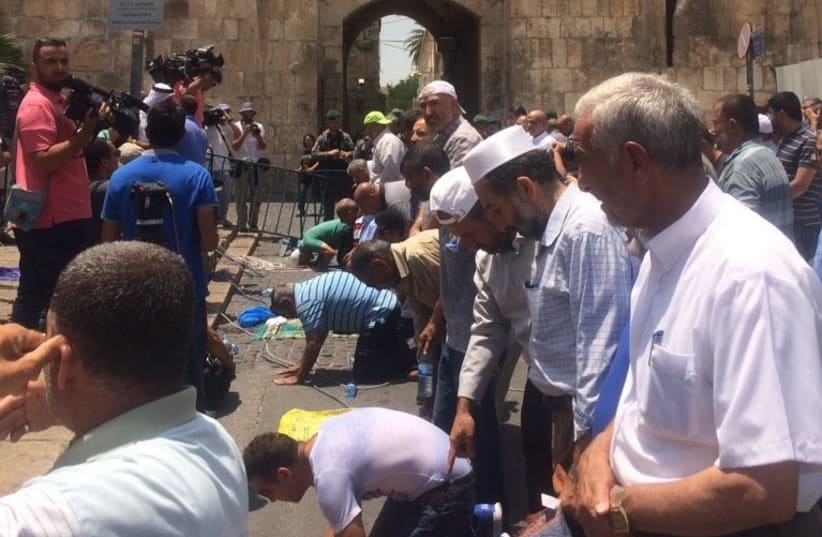PLO executive committee member Mustafa Barghouti, who attended the prayer at the Lions’ Gate, responded to Halevy saying that despite restriction, Palestinians will find ways to enter the Temple Mount compound and bypass the new metal detectors.“We have been under occupation for 50 years, and we will not ‘get used’ to the new injustice,” Barghouti told The Jerusalem Post. “People will try entering in every possible way without going through the electronic devices,” he added.Barghouti pointed his finger at the Israeli government as the source to these tensions, saying it just waited to get an excuse to install the metal detectors at the gate.“These measures were preplanned,” he said. “Nobody is convinced that due to the incident these measures were taken.”“The measures are completely unacceptable,” Barghouti added.“There is no place in the world that collective punishment is used against the whole population... We feel that their aim and nature is to change the situation at al-Aksa mosque.”Barghouti was involved later in clashes near the Gate of the Tribes and was injured lightly.Police on Monday also opened the Mughrabi Gate for Jewish visitors and tourists.The first small group of Jewish visitors who entered the compound Monday morning said the Mourners’ Kaddish prayer for Border Police officers Haiel Stawi and Kamil Shnaan, who were both of the Druse faith and killed in the attack.Jewish prayer on the mount is an especially irregular occurrence as Israel and the Wakf that oversees the site have banned such activity in accordance with the long-standing status quo at the complex, but due to the ban, the Wakf was not present at the spot.Adam Rasgon and Jerusalem Post staff contributed to this report.Call to prayer at Lions Gate. Still not going inside Temple Mount pic.twitter.com/dSxNPvCvhg
— Udi Shaham (@udi_shaham) July 17, 2017
For 2nd day, Muslims refuse to enter Temple Mount over Israeli measures
PLO legislator to ‘Post’: We will find ways bypass new restriction.
